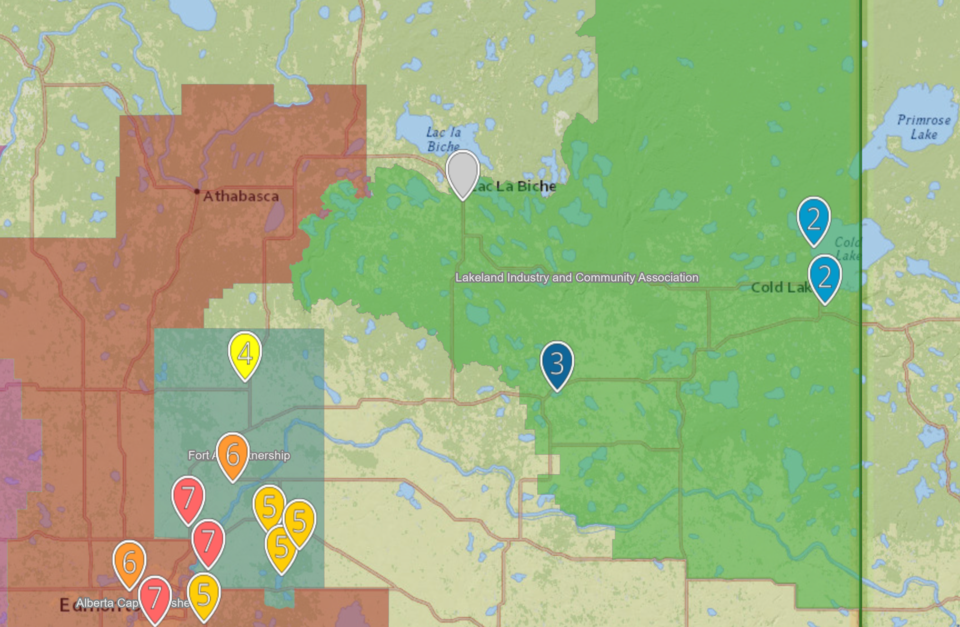LAKELAND - While the air quality in the Lakeland region remained in the "low risk" category throughout the day on Sunday, a special air quality statement had been released by Environment Canada, warning residents of wildfire smoke that would be moving into the area.
Wildfire smoke coming from northeastern British Columbia was causing poor air quality and reduced visibility throughout parts of the province on May 12, according to the statement issued by Environment Canada, Alberta Environment and Protected Areas, Alberta Health and Alberta Health Services.
Smoke is expected to move eastward through the night.
"Conditions should improve by Monday night for most of the province. Over northern Alberta smoky conditions will continue through Tuesday," reads the statement.
"Wildfire smoke can be harmful to everyone’s health even at low concentrations. Everyone can take action to reduce their exposure to wildfire smoke. People with lung disease (such as asthma) or heart disease, older adults, children, pregnant people, and people who work outdoors are at higher risk of experiencing health effects caused by wildfire smoke," reads the statement.
"Speak with your health care provider about developing a management plan for wildfire smoke events and maintaining a supply of necessary medications at home and always carrying these medications with you during wildfire season. Stop or reduce your activity level if breathing becomes uncomfortable or you or someone in your care feel unwell."
Albertans are reminded to check the Air Quality Health Index (AQHI) and monitor symptoms since people respond differently to smoke.
"Mild irritation and discomfort are common, and usually disappear when the smoke clears. Drinking lots of water can help your body cope with the smoke," reads the statement.
"It is important to listen to your body and reduce or stop activities if you are experiencing symptoms. Be sure to check on people in your care and those around you who may be more susceptible to smoke."
The statement also encourages people to reduce sources of indoor air pollution such as smoking or vaping indoors, burning incense and candles, frying foods, using wood stoves and vacuuming.



